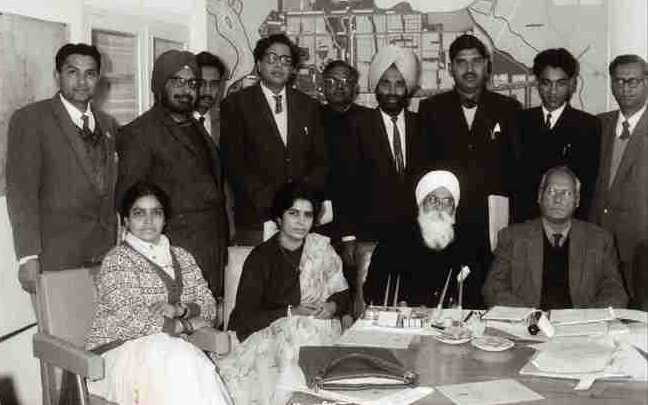Stringing it together with love
Sanjam Preet Singh
When Waryam Singh Sandhu’s story, Akhan Vich Mar Gayi Khushi, was published in Preetlari, he got the confidence that he would become a writer. Such was the influence of Preetlari, which nurtured generations of Punjabi writers.
Preetlari was one magazine that made a complete break with the past. “Before 1933, when Gurbakhsh Singh started Preetlari, the magazines in circulation were quite political and religious in nature. The less said about the content, the better. Preetlari was the first Punjabi magazine that gave a secular outlook to literature,” says literary critic Raghbir Singh Sirjana.
Novelist Avtar Singh Billing agrees, “Gurbakhsh Singh helped Punjabi come out of the fold of gurdwaras and become the language of the common people. He developed quite a following among Punjabi writers,” he says.
Gurbakhsh Singh was responsible for introducing scientific temper to Punjabi literature, something that he had acquired in the United States while getting his degree in civil engineering from there. Sandhu recalls that when he was in Class VIII, he read Gurbakhsh Singh's book, Param Manukh. “The book helped me to understand the philosophy of gurus in a logical way. Thanks to it, the narrative of religious fundamentalism has always failed to impress me,” he adds.
Several budding writers were in awe of him not only because of his progressive thoughts, but also because of his grip over the language. “Preetlari has made a huge contribution in enriching Punjabi language. Gurbakhsh Singh presented new ideas and concepts in a simple language and, with it, developed a language of love,” says Sirjana.
Gurbakhsh Singh’s contribution was manifold. He dreamt of an idealistic society that took the shape of Preet Nagar, formed a Preet Sena, organised Preet Milnis, practised mechanised farming, started an Activity School, advocated women's empowerment and talked of equality in human relationships. He was driven by the philosophy “To love is to recognise, not to possess.”
If Preetlari had an avid readership, it also had its detractors. In the 1960s and 1970s, when the Naxalite movement was at its peak in Punjab, writers and poets of the time started questioning Gurbakhsh Singh’s writings and ideas.
Sandhu recalls that the 1967 Preet Milni in Amritsar was organised in a highly charged atmosphere. “Anyone who spoke against the then political circumstances and the state of affairs in literary circles was rapturously received by the audience. Such were the times that even Birha da Sultan Shiv Kumar Batalvi recited a revolutionary poem. In the Preet Milni held in 1971, I recited a poem that was a satire on Preet Milnis. That was a time when opposing Gurbakhsh Singh seemed like a literary struggle and a part of a bigger fight,” he remembers.
That was one chapter in the 86-year-long history of Preetlari. Sandhu acknowledges that writers and poets of the time had become arrogant. “We behaved as if a revolution was round the corner.”
Notwithstanding the setbacks — the major one being the death of Gurbakhsh Singh in 1977 and, within a short span of time, that of his son Navtej Singh — Preetlari is still in circulation, though the number has dwindled. Its present editor, Poonam Singh, is carrying the legacy forward, working tirelessly on every edition.
Efforts are being made to revive what has been lost. Preetlari Residency is one such initiative in that direction. Preetlari’s old editions have been digitised for posterity. Billing sums up the journey of Preetlari in a couplet, “Manukh di maya, birkh di chhaya, tur jandi naal (Man’s doings, tree’s shadow, vanish with it).”









